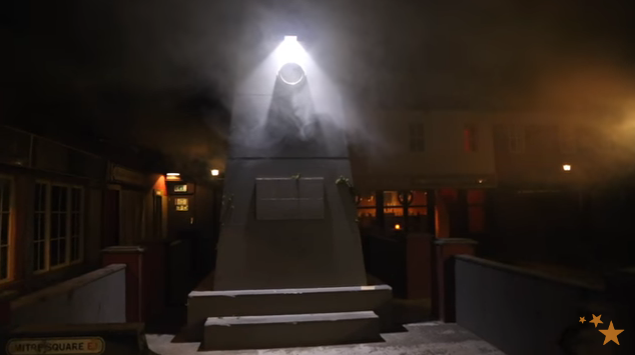If you’ve ever felt like quitting your nine to five and doing something theatrical, then why not set up an immersive theatre company? It’s all the rage. Find out how Jamie Biddle made it work for him.
Video case study: How to run an immersive theatre production
Who’s the entrepreneur and what’s the business?
Jamie is creative director of Apocalypse Events, an immersive theatre company based in London.
In immersive theatre, the audience plays an active role in the production – whether as witnesses or actual characters. They are not just passive bystanders.
One of Apocalypse Events’ productions is set in Whitechapel, in 1888, in London’s East End, at the height of Jack the Ripper’s notoriety. The idea came from many sources, including comic books, films and TV shows, although most versions of the story focused on the killer.
Instead, Jamie wanted to focus on the psychological effect on Londoners, many of whom were too terrified to venture out at night.
Called Suspects, Lunatics and a Leather Apron the production divides audiences into three groups: the homeless, the police and the Whitechapel Vigilance Committee (after the second murder, groups of vigilantes started roaming the streets in the hope of delivering their own version of justice).
The vigilantes meet in the reconstructed upstairs room of a pub called The Crown and discuss how they can catch the killer. Things often get very angry and heated, says Jamie!
The Homeless group, meanwhile, find charity in a doctor’s room. But the centrepiece is the Ten Bells Pub, where Jack the Ripper was said to stalk his victims and where various strands of the theatre production unfold, diverge and overlap.
Held in a secret location the experience is loaded with tension and anticipation.
A day in the life of an immersive theatre creative director
Jamie’s main duty is to prep and coordinate the large cast of professionally trained actors. It’s important to be calm and patient in his role, he says. You shouldn’t get annoyed with anyone when mistakes are made – they’re all only trying their best, after all.
Jamie can rehearse as much as he wants, but he still has to think on his feet: the night unfolds in an unpredictable fashion given that the audience helps drive the story.
And audiences can be mischievous, especially with many people consuming alcohol throughout the event. Jamie is very much in the heart of the action during proceedings – and in costume – keeping an eye on things, making sure performers are safe.
Advice for aspiring immersive theatre owners/directors
Jamie offers the following tips for anyone considering becoming an immersive theatre director or owner (one option is to buy an existing theatre business):
- You can never do enough research or planning. A production needs more than a single, grand story. Each scene should have about six to eight ideas that have been meticulously worked on. If you’re an expert on the topic, it can only burnish your credibility.
- Actors must be briefed in detail on their role and character so they can answer questions and respond to scenarios adeptly. It’s an exhausting process, especially with such a big cast.
- Limit the audience. If you try and fill the venue, you run the risk of people missing a lot of the action and walking away disappointed – bad news for your reputation on review sites and social media.
- Make it affordable. Immersive theatre is really in vogue right now. In a competitive market, you need to make sure the average person can access it. This isn’t as easy as it sounds as there are inevitably a lot of overheads and expenses.
- You need to tell a story: immersive theatre is much more than just going from room to room encountering creepy goings-on. You need to curate a memorable experience that the audience will recommend to their friends!





